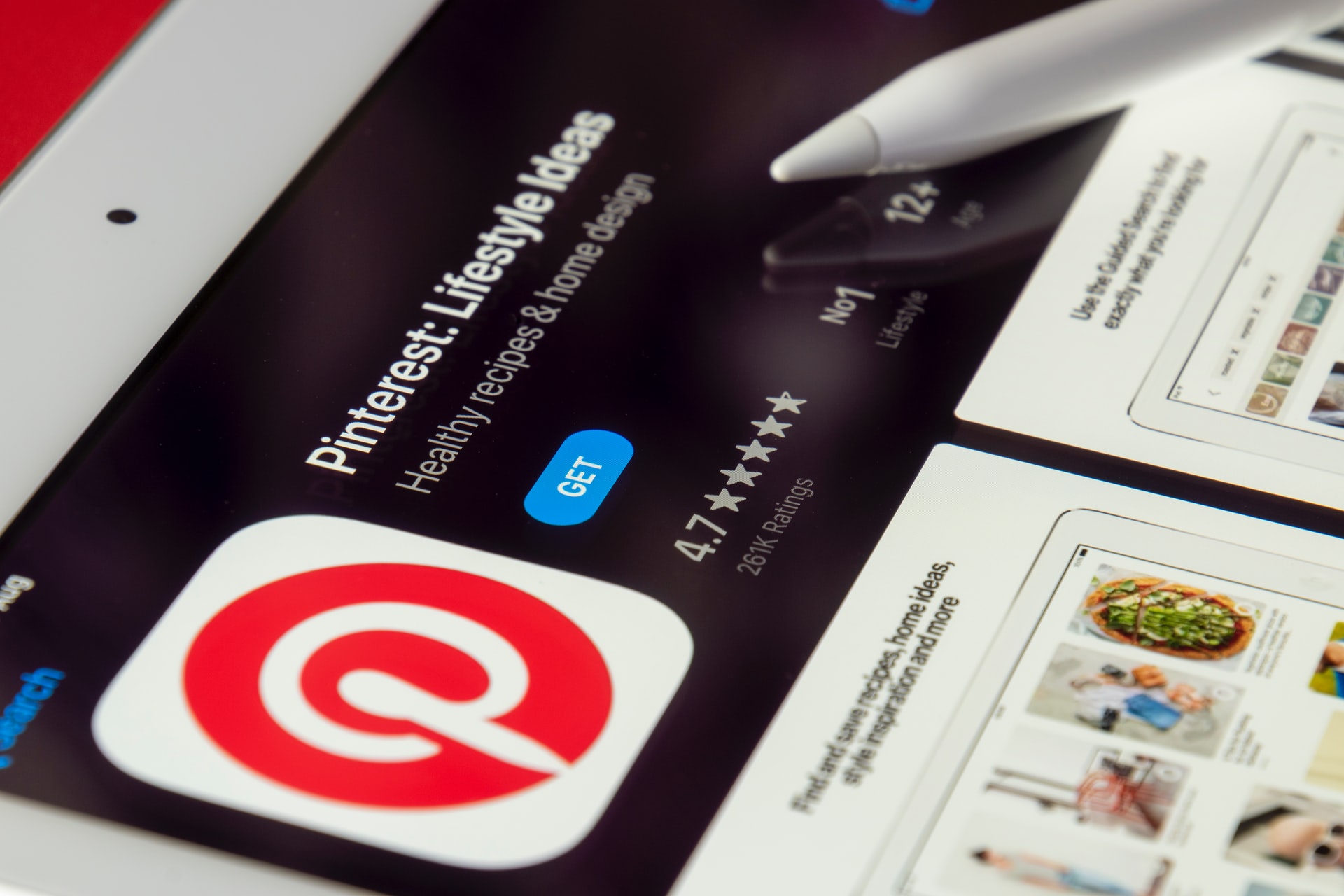Should Your Business Be on Pinterest? See if Pinterest is Right for Your Marketing Strategy
Pinterest isn’t social media – it’s a visual search engine. Highly visual industries realize the value of Pinterest for marketing, such as photography, travel, food, fitness, art, and fashion.
Quick Links
However, some businesses may not know if they belong on the platform or if it’s a good fit. Pinterest is versatile and boasts over 400 million active users each month. With a few tweaks, you can harness the power of Pinterest for your business.
Before you get started, evaluate how your brand can benefit from the platform’s unique offerings.
What is Pinterest?
Though it’s often lumped in with the other social media platforms, Pinterest isn’t truly social media. Pinterest is more of a visual search engine that relies on attractive images and videos that are optimized with keywords.
One of the aspects of Pinterest that makes it unique is that people can “pin” what they like on different boards for future purchases, ideas, and inspiration. Users can reference these pins and boards whenever they choose, so it’s ideal for things like seasonal fashion inspiration, wedding planning, and upcycle or craft projects. About 85 percent of users say they refer to Pinterest for new projects.
What does this mean for your brand? If you can offer users what they’re looking for and solutions to common problems or pain points, they may become your customers.
Pinterest differs from other social media platforms in that 97 percent of searches are unbranded. The users don’t care about who you are, what your brand stands for, and how many followers you have. It’s the one remaining platform that allows brands to be found organically without a massive advertising budget.
Pinterest ads are also different from other ads on other platforms. Each ad just looks like a pin, so the user experience isn’t disrupted by invasive advertising.
Should Your Business Be on Pinterest?
Now that you know what Pinterest has to offer, you can decide if it’s the right fit for your business. This starts with one question: Do you have a website or blog?
Pinterest marketing is only useful if you have a website or blog. The goal is to drive traffic to your website to generate leads and sales. If you only have a brick-and-mortar business with no online presence, Pinterest doesn’t hold any value for you.
For brands with a website or blog, Pinterest may be a good fit if:
You Need New Leads and Customers
Pinterest can drive a lot of traffic to your website and generate new leads and customers. Conversion is the ultimate goal of pinning, whether for email subscriber lists, website traffic, or sales, and Pinterest can bring completely new audiences to your website.
Users that are searching for products and services to solve a problem, such as an online course, new bedding, or a meal-kit service, can search on Pinterest and find your brand or products. If it satisfies their needs, you have a new customer. Roughly 80 percent of pinners discover new brands and products on Pinterest each week, giving you an opportunity to expand your business’s reach.
Your Social Media is Stale
Social media isn’t ideal for generating traffic to your site. Algorithms have changed and organic social media growth has become virtually impossible. Paid advertising or a stroke of luck with viral content are about the only ways to get discovered.
Paid advertising on Facebook and Instagram can be expensive and you have a lot of competition. You’ll need a substantial marketing budget to reach a high volume of users. For many businesses, paid advertising isn’t affordable or worth the money, time, and effort.
In addition, the Apple iOS 15 update has been detrimental for Facebook and Instagram advertising. The cost of achieving marketing goals have increased and it’s been more difficult to measure success with campaigns.
You Have Clear Conversion Goals
While this is true of any type of marketing campaign, Pinterest marketing requires having clear conversion goals. You need to have specific metrics to look for and measure your results, constantly reevaluating and tweaking your campaigns.
You should approach Pinterest with these goals in mind and create and share pins that can provide users with clear solutions to the problems they search. If you have a clearly defined marketing funnel, you can convert your site visitors into customers.
The customer journey should be seamless from pin to conversion, guiding the customer to the action you want them to take. This could be subscribing to your email list, buying a product, signing up as a new client, or generating website traffic.
Most importantly, the journey from pin to conversion shouldn’t have any obstacles or unnecessary steps. It should be quick and easy for a user to find a pin, click, and complete a signup or purchase.
You Understand Your Audience
Pinterest is a great place to target your ideal audience, but you have to know who that is. Your audience is a big part of your strategy and informs your campaigns and messaging to increase engagement, grow your followers, and increase conversions.
Though you may know who your audience is in the broad sense, such as pet owners, teenagers, college students, etc., you may not know how they use Pinterest and what they search for. They may use Pinterest differently than they use Facebook or Instagram, for example.
Before you craft your marketing campaign, take some time to investigate the analytics, trends, and keywords on Pinterest. The more you can drill down on your audience, the more targeted and effective your strategy will be.
Implement Pinterest into Your Marketing Strategy
Pinterest marketing can be powerful for brand awareness and online presence, but only if you use it properly. Once you have defined your target audience and set your goals to create your marketing strategy, it’s time to put it to action.
Here are two key components to a successful Pinterest marketing strategy: Consistency and adaptability.
Your marketing strategy on Pinterest must be consistent. Publish your posts at regular intervals and use the right keywords for your audience. Over time, Pinterest will show your pins to the target audience and your conversion rates will increase.
Keep in mind that it can take a few months to reach your audience and increase engagement, so stay the course. After about 90 days, you can examine your analytics to see which pins perform the best, which pins underperform, and which keywords get the most traction. You’ll also have in-depth insights to target your ideal audience. This information can inform your next strategy.
Adaptability is also important. Pinterest is constantly changing, adding new features and functionality. If your strategy isn’t working after a few months, it’s time to reevaluate and adapt. It’s important to check your analytics regularly to see what’s working and what isn’t. Use this information to make adjustments to your marketing strategy.
Using Pinterest Ads
Just like other platforms, Pinterest offers paid advertising and organic reach. Effective, consistent marketing strategies can boost organic reach and traffic, but paid ads are also valuable. If you combine the two, you can reach a wide audience and expand your presence on Pinterest.
Fortunately, Pinterest advertising is quite effective. Pinterest has 2.3 times more efficient costs per conversion and the ads offer 2 times higher returns on ad spend (ROAS), compared to social media ads.
If you have the budget, adding paid ads to your Pinterest marketing strategy can help you reach your goals faster.
Leveraging Idea Pins
After millions of Pinterest users asked to engage with video and explore content directly, Pinterest launched Idea Pins. This new feature uses multi-page video formats that users can interact with. For business owners, this means a new capability to create inspiring content and engage the audience directly on Pinterest.
Idea Pins allow you to publish high-quality, save-able content directly to Pinterest. Users are able to see Idea Pins from accounts they follow at the top of the feed, ensuring they see fresh content whenever it’s posted. On average, Idea Pins get an average comment rate nine times that of standard Pins.
Get Started with Pinterest Marketing
Pinterest is an excellent marketing tool for visual brands that want to boost online engagement and traffic, but it’s not ideal for every business.
If you’re looking for a new approach to driving traffic to your website and you understand your audience and goals, Pinterest may be the right choice for your brand. However, you must have a solid, evolving Pinterest marketing strategy for success on the platform.
Author: Sandy Dedeian

Sandy is the founder of Rectified Inc. – a digital marketing firm based in Montreal. Since 2004, she has worked with multiple SMEs in Canada, the USA, the UK and the Middle East to help them maximize the impact of their marketing efforts. She holds an MBA from HEC Montreal.
How to Use AI-Powered SEO Tools for WordPress eCommerce
SEO is a critical factor in the success of any e-commerce WordPress store. As competition…
0 Comments11 Minutes
Why Short-Form Videos Are the Future of Content Marketing
Your Instagram customers spend over 50% of their time watching short-form videos and reels. Rather…
0 Comments12 Minutes
The Role of Digital Marketing in Business Growth
Online marketing touches every aspect of a business, whether it is initiating the idea or for an…
0 Comments3 Minutes
AI Meets Authenticity: Balancing Automation and Human Touch in Content Marketing
Is your brand starting to sound like a robot? In a world where algorithms write faster than any…
0 Comments8 Minutes
Essential Tools for Enhancing Web Design and UX Hosting
Have you ever visited a website that felt slow, clunky, or confusing? A website that is poorly…
0 Comments11 Minutes
How a Mini Cart Transformed My Store’s Shopping Experience
Okay, real talk—running an online store is hard. You think you’ve got everything figured out, you…
0 Comments9 Minutes
Balancing Your Security Initiatives With Industry Compliance Requirements
Managing a business today comes with a number of daily battles that need to be fought. Resources…
0 Comments11 Minutes
Best plugins to enhance the customer shopping experience
Customer experience is a key part of every online store. A good experience helps customers find…
0 Comments7 Minutes








